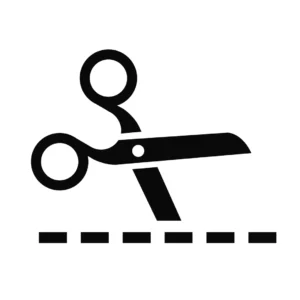1 in 10 [1] Americans struggle with alcohol addiction. This is not surprising, after all, alcohol is one of the most addictive substances in America. Chronic alcohol abuse can lead to a wealthy array of physical and mental consequences. If your alcohol use has graduated into abuse or even an addiction, it’s time to take action. These recovery words of wisdom may be just the inspiration you need to hear. A healthy mindset is a must for dealing with an addiction. If you’re having a hard time, take a look at these encouraging words for alcoholics and drug addicts alike. They offer insight into the recovery process and proven tips on how to succeed.
Recovery Words of Wisdom #1
The Cure for Addiction is Not Just Working Harder

Contact us or Call now!
866-805-1674
‘I'm Not Telling You It Is Going To Be Easy, I'm Telling You It's Going To Be Worth It’
-Art Williams
Many alcoholics don’t realize how difficult it is to heal from alcohol abuse. They believe that they can manage their alcohol addiction alone by simply ‘working hard at it’. Unfortunately, that’s rarely the case. For a successful recovery, you’ll likely need professional help from trustworthy treatment centers.
Addiction treatment involves not only medical detox, but also counseling and therapy. Counseling and therapy teaches and empowers patients to live independently and equips them with the tools to take care of their own mental health. All approaches are evidence-based and specifically intended to treat addictions to drugs and alcohol.
To treat alcoholism, you need to work smarter, but not necessarily harder. Without the right tools, you may find yourself constantly trying to climb out of a never-ending cycle. To defeat alcoholism, you need to gain the right skills and tools. Recovery is a lifelong journey. You’ll find yourself frequently implementing skills you’ve learned at rehab and at support groups.
#2 Guard Your Sobriety with Your Life

‘Ya think that the whiskey tastes good? Try a big cup of sobriety—now that is the good stuff!’
-Steven Tyler
An alcohol addiction is very difficult to kick and it’s easy to relapse when faced with triggers and stresses. In fact, 90% of alcoholics [2] will relapse at least once in the four years following addiction treatment.
Upon completing alcohol rehab, guard your sobriety with your life. Don’t let anyone convince you to go out for ‘just one drink’. Even when a loved one asks you to go out to celebrate, it’s vital to continue to guard your sobriety. Opt for a virgin cocktail rather than an alcoholic beverage. Or better, choose to find a way to celebrate with them in a way that doesn’t involve drinking at all.
Many alcoholics become overconfident and think that their decision to use a certain drug or alcohol once won’t affect their sobriety. Unfortunately, this confidence is what causes many alcoholics to relapse. Just a single drink may cause them to experience mild alcohol withdrawal symptoms. This can then lead them to start drinking again.
To learn how to guard your sobriety, look for treatment options that teach you how to avoid triggers. If you feel like you need more support after completing alcohol rehab, you may want to sign up for an outpatient treatment program. This gives you more time to get used to a life of sobriety and abstinence. Finding treatment programs will usually be fairly easy. Most alcoholics will continue to work with the same alcohol rehab facilities.
#3 Branch Out of Your Comfort Zone and Embrace Sober Fun

‘Don’t let the past steal your present’
-Terri Guillemets
Many alcoholics think that the only way that they can have fun is while drinking. During recovery, it’s important to keep yourself busy and entertained. Boredom may cause you to turn to alcohol or other drugs, like prescription drugs.
During the withdrawal and detox treatment at the alcohol rehab facility, you will likely participate in many different activities. It’s a good idea to continue these hobbies even after you’ve left the rehab. For example, if you frequently participated in art therapy, buy yourself some paintbrushes and paint. Sit down and paint the landscape at a park or use your imagination to come up with a creative piece.
Keep in mind that there’s a difference between keeping busy and stuffing as many activities as possible into your schedule. Most people don’t actually like having a schedule with no free time or wiggle room. Instead, you want to sprinkle fun activities here and there throughout the week in a way that’s enjoyable for you.Examples of Fun Sober Activities and Hobbies
There are many fun activities and hobbies that you can enjoy along your sobriety journey! ! Why not step out of your comfort zone and try the following activities:
- Go to a comedy club for a night filled with laughter and fun. Who knows? You might even end up on stage performing some day!
- Volunteer. Volunteer work can be very satisfying as it leaves you feeling fulfilled and like you are helping to make a meaningful difference. Find a charity or an organization that aligns with your beliefs.
- Participate in sports or exercise. Exercise is great for the mind and the body. Join a sports team that participates or plays regularly to keep yourself preoccupied.
- Watch a movie. Instead of focusing on your own life, one distraction can be to get sucked into the drama of someone else's.
- Learn how to cook or practice new recipes. Cooking at home can teach you healthier eating habits. This can improve your physical health. Many people also find cooking to be very therapeutic. Best of all, the results are often delicious!
- Meditate or practice yoga. Meditation and yoga is good for your mental health. Both can help you relax and strengthen your mind
- Read a new book. Grow mentally and escape into another world by reading a new book. You could also read self-help books if you want to learn new habits or skills.
- Study a new language. Sign up for classes or even pick up language-training CDs and books to learn a new language.
- Travel. Go to a new country if you’re feeling super adventurous and a new city if you’re just looking for a new experience. You can even act as a tourist in your own city. You’d be surprised at how much you miss on a regular basis.
Taking up new hobbies and activities can be life changing. You’ll learn new habits and become a more well-rounded individual who does not need to relapse.
#4 Social Use Leads to Abuse

“My Recovery Must Come First So That Everything I Love In Life Doesn't Have To Come Last”
If there’s anything that almost all recovering alcoholics agree on, it’s that social use often leads to alcohol abuse. Sobriety is a lifelong process. Once you’ve dabbled with addiction, social drinking will almost be impossible. Social drinking will only interrupt your road to recovery.
#5 Cut Off Toxic People and Nourish Healthy Relationships

‘Sometimes you can only find heaven by slowly backing away from hell.’
— Carrie Fisher
Toxic people can be detrimental to your recovery. One of the most important skills that the treatment programs will teach you is how to cut toxic people off. It’s important to know who is a good influence in your life and who is preventing your success
During the recovery process, pay attention to the people around you. Learn how to cut off toxic people and remove them from your life. This can include friends who encourage you to drink, or other alcoholics in your life.
It’s also important to recognize those who are good influences on you, and to work hard to nourish these relationships. These people may include those who encouraged you to seek substance abuse treatment to begin with.
#6 Have a Plan for Life After Discharge

The best way to predict your future is to create it.
– Abraham Lincoln
While everything may seem great and even easy at the rehab center, the circumstances change drastically when you leave. Once you leave,you no longer have constant access to as many resources and tools.
It’s vital to choose recovery programs that focus on aftercare planning or continuing care. These programs should look at how to deal with alcoholism and drug addiction even after the rehab program is completed. It will look at the type of skills and techniques that the patient should implement whenever they feel stressed. It should also look at the type of support groups and programs that the patient should continue to participate in even after completing the treatment programs.
Most important is to have a plan in place. Figure out where you’re going to work, what you’re going to do and where you’re going to live. Have a good idea of the places and people you should avoid.
#7 Baby Steps Lead to Success

“It does not matter how slowly you go as long as you do not stop” Confucius
It’s okay if you’re only taking baby steps on your road to recovery. Remember that this is a lifelong process that cannot be rushed. Try something new every week and be proud of yourself for it. Take tiny baby steps and if you feel overwhelmed, take a step back. Constantly challenging yourself.will tire you out quickly. Slow and steady always wins the race.
You can also reach out to family and friends in your support group. They can help you to keep going. Don’t beat yourself up over failures, and do celebrate your successes. Remember, every baby step is progress in the right direction.
#8 Learn How to Forgive Yourself

‘Our greatest glory is not in never failing, but in rising up every time we fail.’
– Ralph Waldo Emerson
When abusing alcohol or drugs, there’s a good chance that you’ve ruined several relationships. You may have done some things that you now regret. While support groups, like Alcoholics Anonymous, encourage you to make it up to the wronged parties, you also need to accept that they may not always forgive you.
When on the road to recovery, it’s important to learn how to forgive yourself. Holding on to any shame and guilt will only come in the way of your recovery. Take any actions you deem necessary to make amends to those you have harmed. This includes repaying money that you’ve stolen and apologizing for any hurtful things you’ve said.
If you’re having a hard time forgiving yourself and letting go, write out what you’ve done. Include why you feel angry with yourself. Having everything written down on paper can be very therapeutic. This also gives you an opportunity to be completely honest with yourself.
Take time to sit down and discuss your feelings with a mentor. Counseling and therapy can be particularly beneficial during these times as well.
#9 Band Together with Like-Minded People to Get the Support You Need

‘We’re all looking at the people around us, the people who have gone before us who have succeeded in recovery and have long-term sobriety and they are an illustration for us of how good it can be.’
— Scott Stevens
If you’re struggling with alcohol abuse or dependence, don’t hesitate to reach out to recovering alcoholics. There’s a lot of support within the community, and many recovering alcoholics are happy to share their words of wisdom for recovery..
Being around like-minded people or people in similar situations can help ease your fears of quitting. You can share personal experiences with others who can empathize and understand. You can also learn a lot from hearing about the experiences of others.
At Avenues Recovery we understand the importance of having a strong support group there for you. We encourage our patients to get to know one another. We also host many support group meetings for patients to share personal stories and encouraging words of advice. Contact us 24/7 to hear how else we can start to assist in your recovery.
Sources


